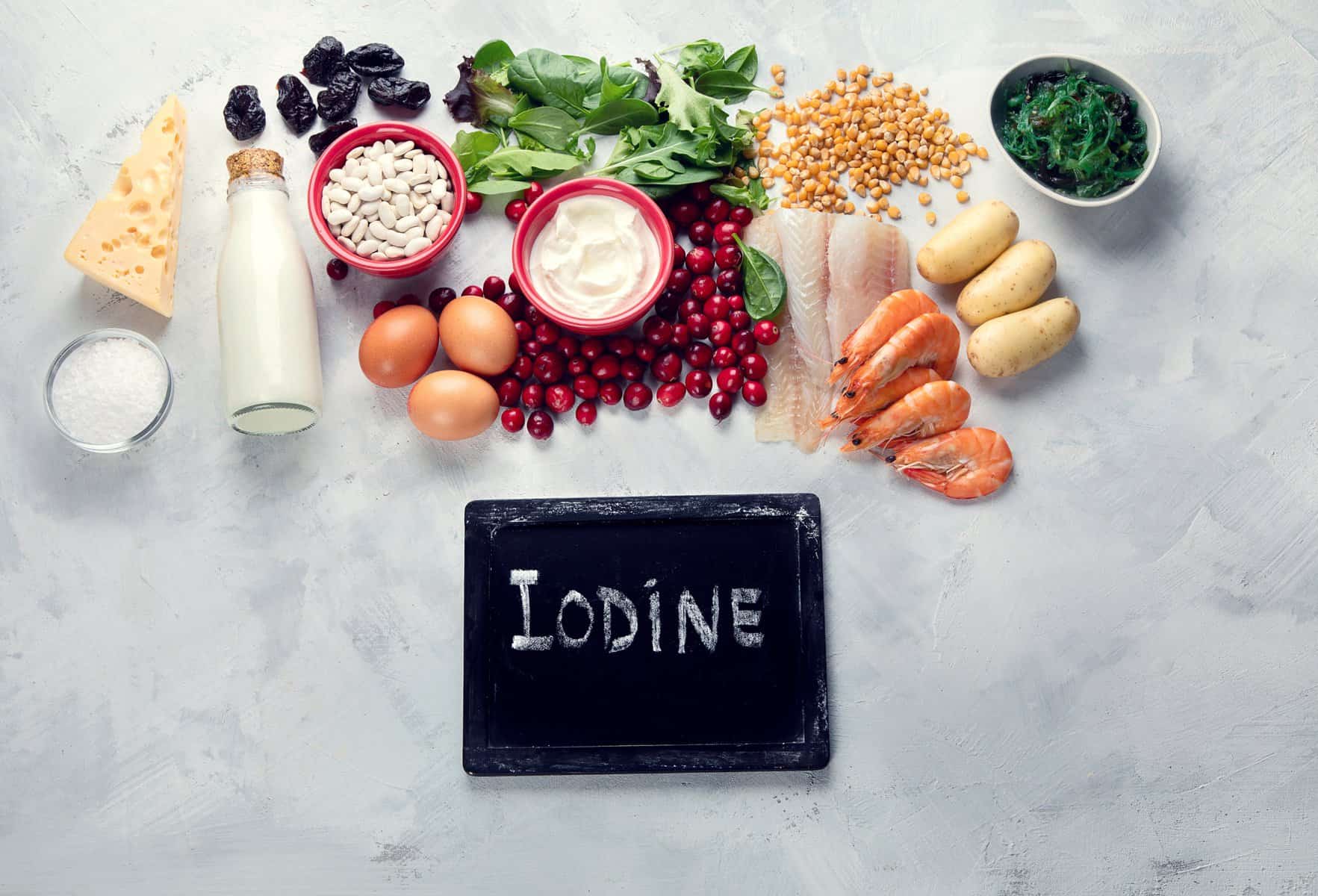
Whether you associate iodine with a topical antiseptic solution, know it has something to do with thyroid health or have been told to find a supplement containing it because you’re planning on starting a family, you’ve probably heard of the term. What is iodine? Why is it important? And where do we find it? How do we know if we are getting enough?
What is iodine?
Iodine is an essential trace element (I.e. we need to get it from our diet, our bodies cannot produce it) that is an integral component of thyroid hormones (T4 and T3), which are essential for normal growth and metabolism, and regulation of cell processes. Having too much or too little of these hormones can result in conditions called Hyperthyroidism (where the thyroid releases high levels of the thyroid hormone) or Hypothyroidism (where the thyroid gland is underactive and fails to secrete enough hormones into the bloodstream), which can have adverse effects on bodily function.
Symptoms of Hyperthyroidism include:
- Weight loss
- Fatigue
- Nervousness
- Increased appetite
- Heat intolerance
- Unusually heavy sweating
- Goiter
- Tachycardia
Symptoms of Hypothyroidism include:
- Cold intolerance
- Weight gain
- Fatigue
- Dry, brittle hair
- Headache
- Reduced attention span
- Depression
- Decreased exercise tolerance
- Constipation
- Irregular or heavy periods
- Infertility
What are good sources of iodine?
Iodine is in found in the ocean and soil; however Australian soil tends to be low in iodine. Foods rich iodine include iodised salt, seaweed, oyster, bread (except organic), fish, eggs, milk and cheese.
What are the benefits of iodine?
Iodine helps makes the hormones that help your body regulate:
- Body temperature
- Heart rate
- Energy levels
- Metabolic function
- Brain development and much more.
Which groups should be mindful of iodine doses?
- People who have hyperthyroidism, as too much iodine can make hyperthyroidism worse
- Women who are pregnant, as iodine requirements increase during pregnancy and breastfeeding
What role does iodine play in fertility, pregnancy and early childhood? AKA ‘the first 1000 days’
- For women, iodine deficiency has been associated with reduced fertility, restricted foetal growth, higher prevalence of preeclampsia and preterm delivery;
- For men, iodine deficiency has been associated with longer time to pregnancy and reduced semen quality2;
- For infants, severe iodine deficiency in utero (due to maternal intake) or in early childhood, can result in stunted growth and/or impairments to normal mental development3.
Am I getting enough?
According to the Australian nutrient reference values adults should be aiming for:
Males 19+ 150µg/day
Females 19+ 150µg/day
During pregnancy 220µg/day
During lactation 270µg/day
If you are planning on starting a family, it may be worthwhile having iodine on your radar as iodine is stored in the thyroid gland and during pregnancy thyroid hormone production increases by about 50%4 to support the rapid development of the fetus. Whilst women can obtain a good amount of iodine from the diet, a daily supplement of 150µg can be helpful to meet the increased requirements before, during and after pregnancy.
Are you struggling with your iodine intake? Come see our team at the clinic!



